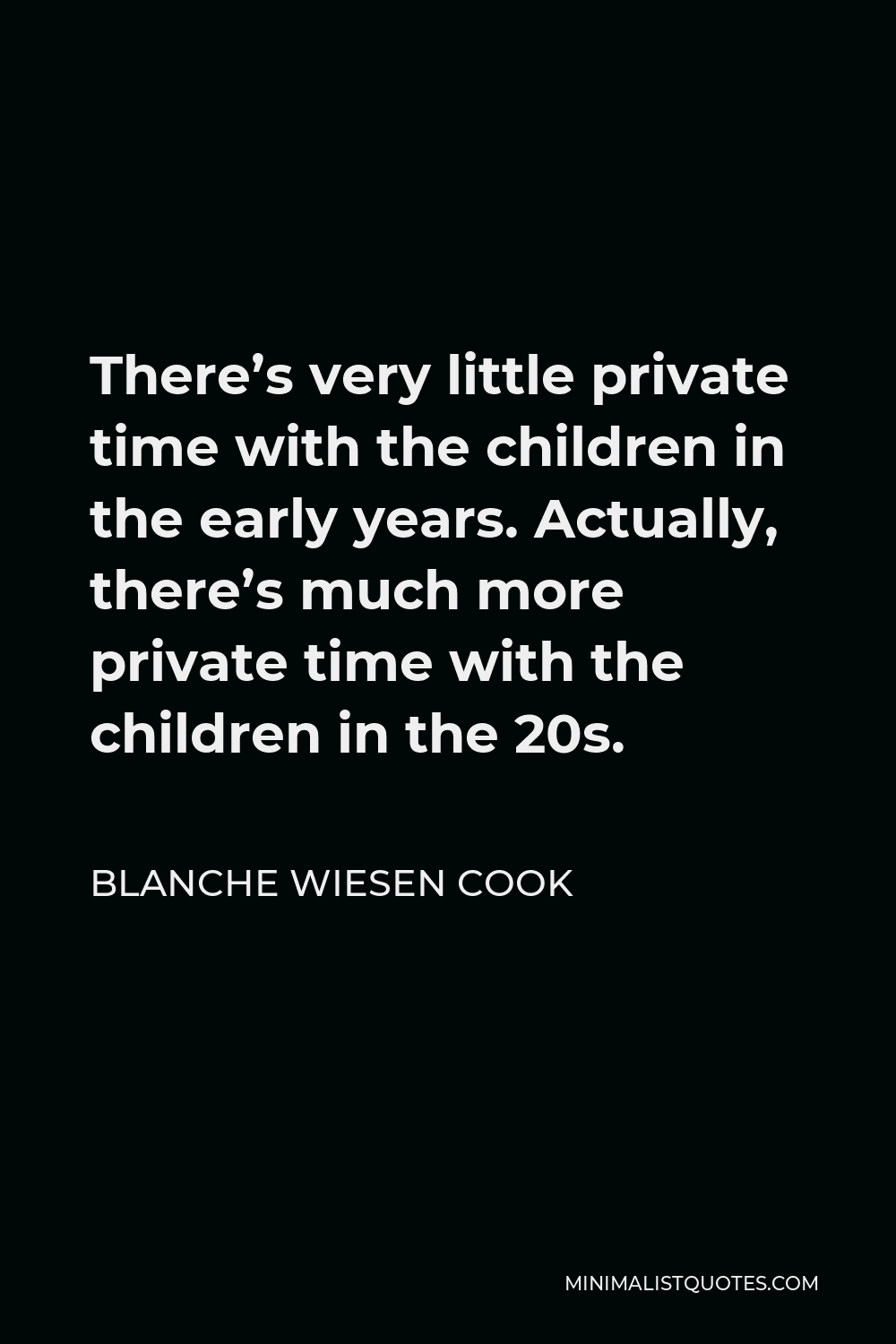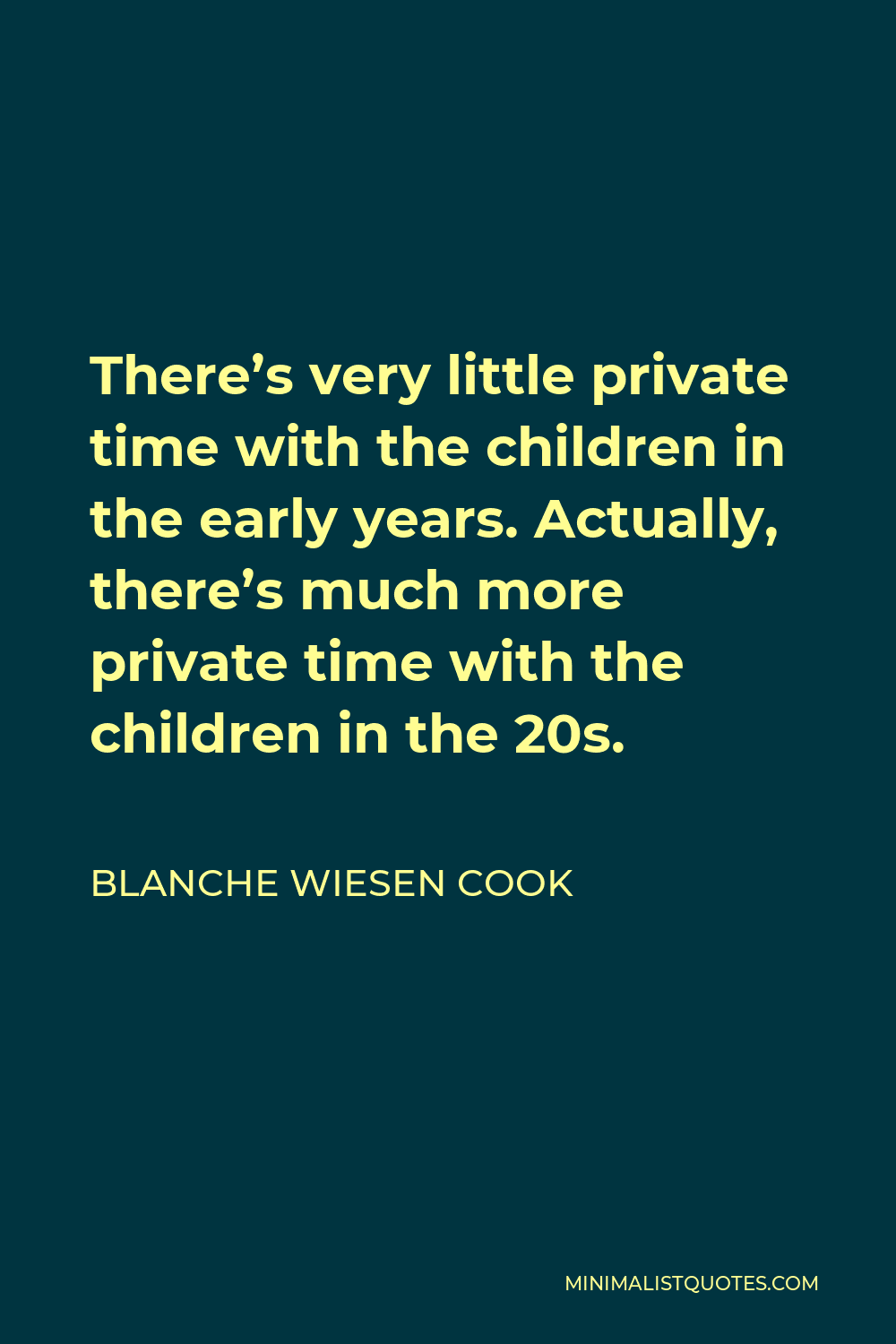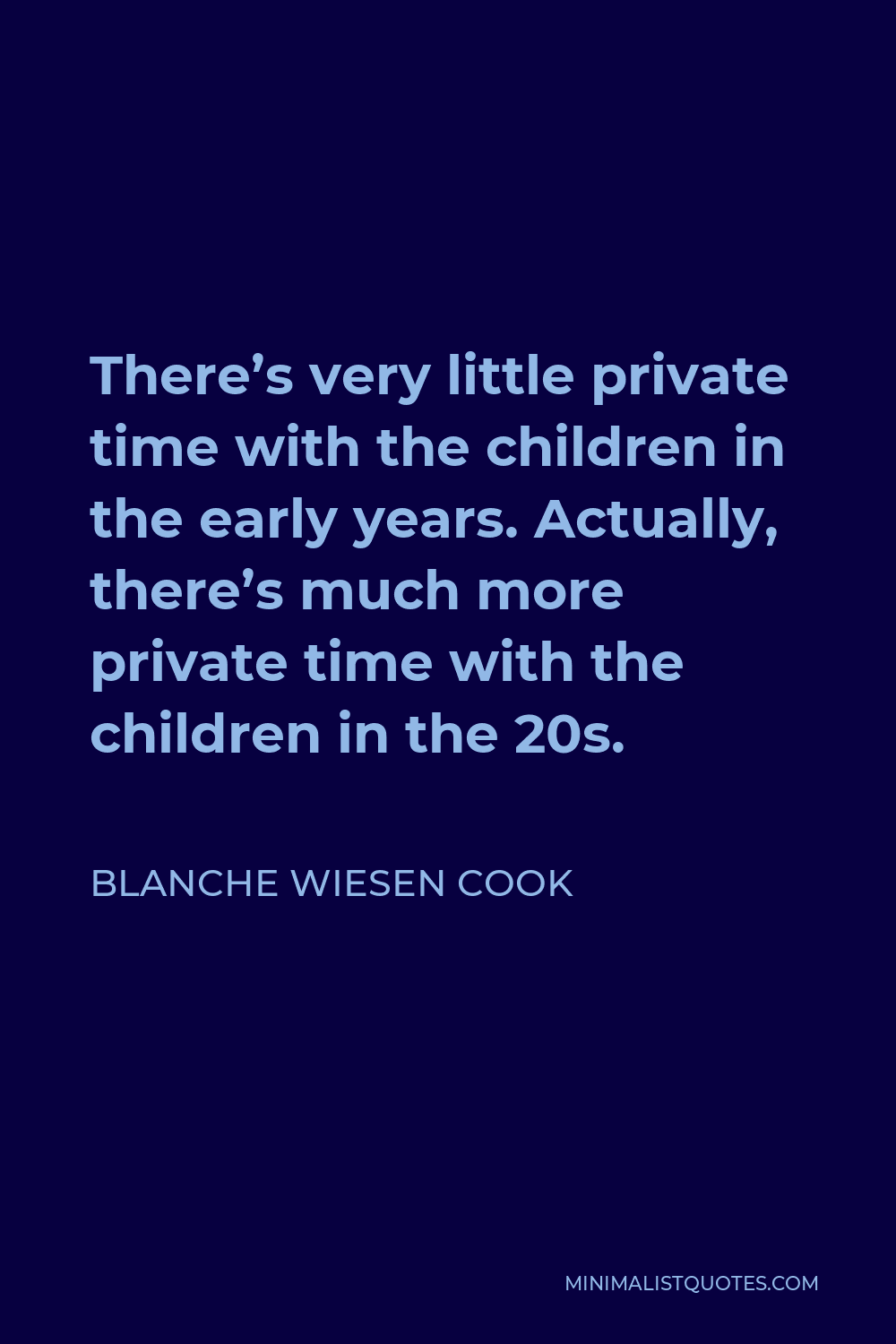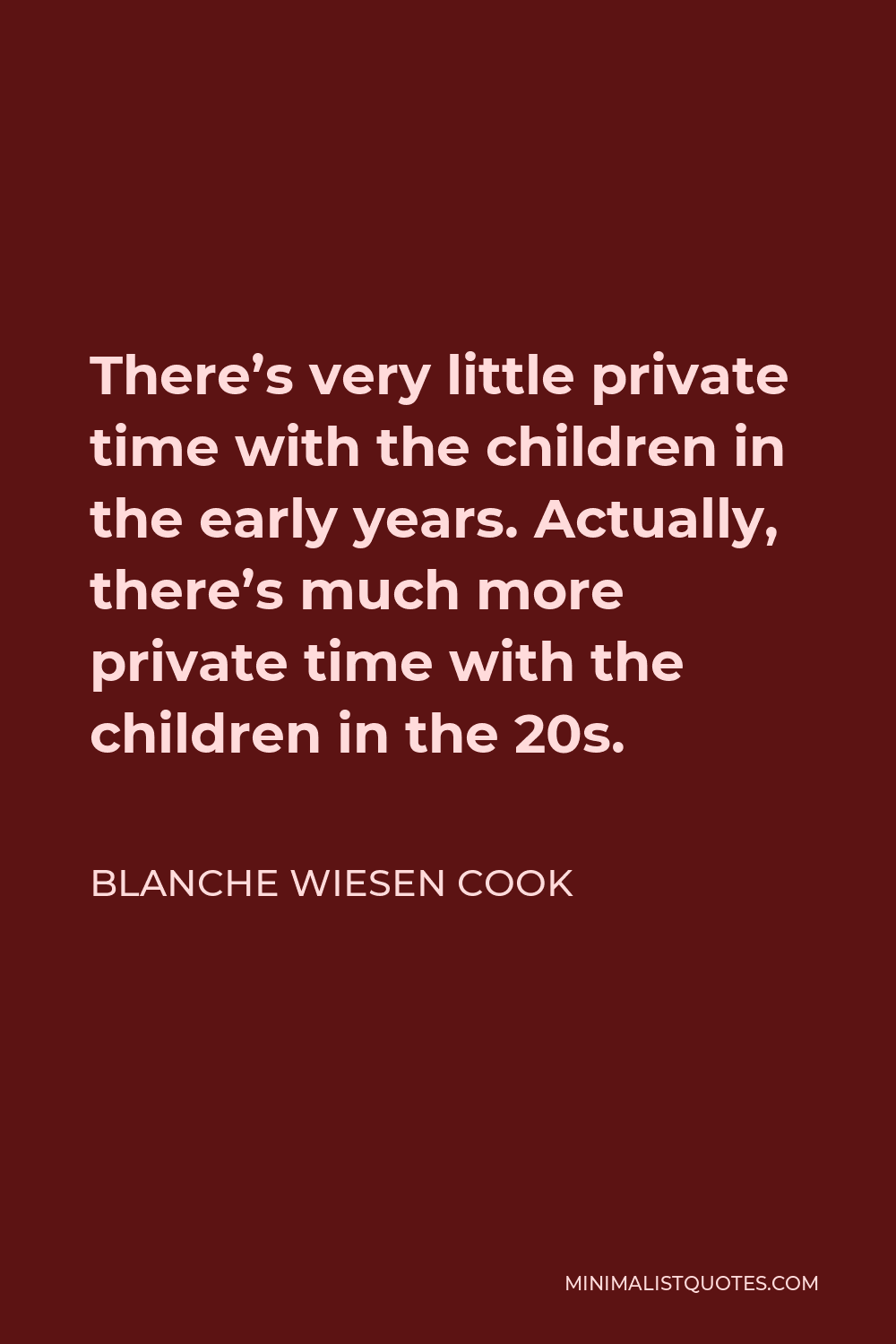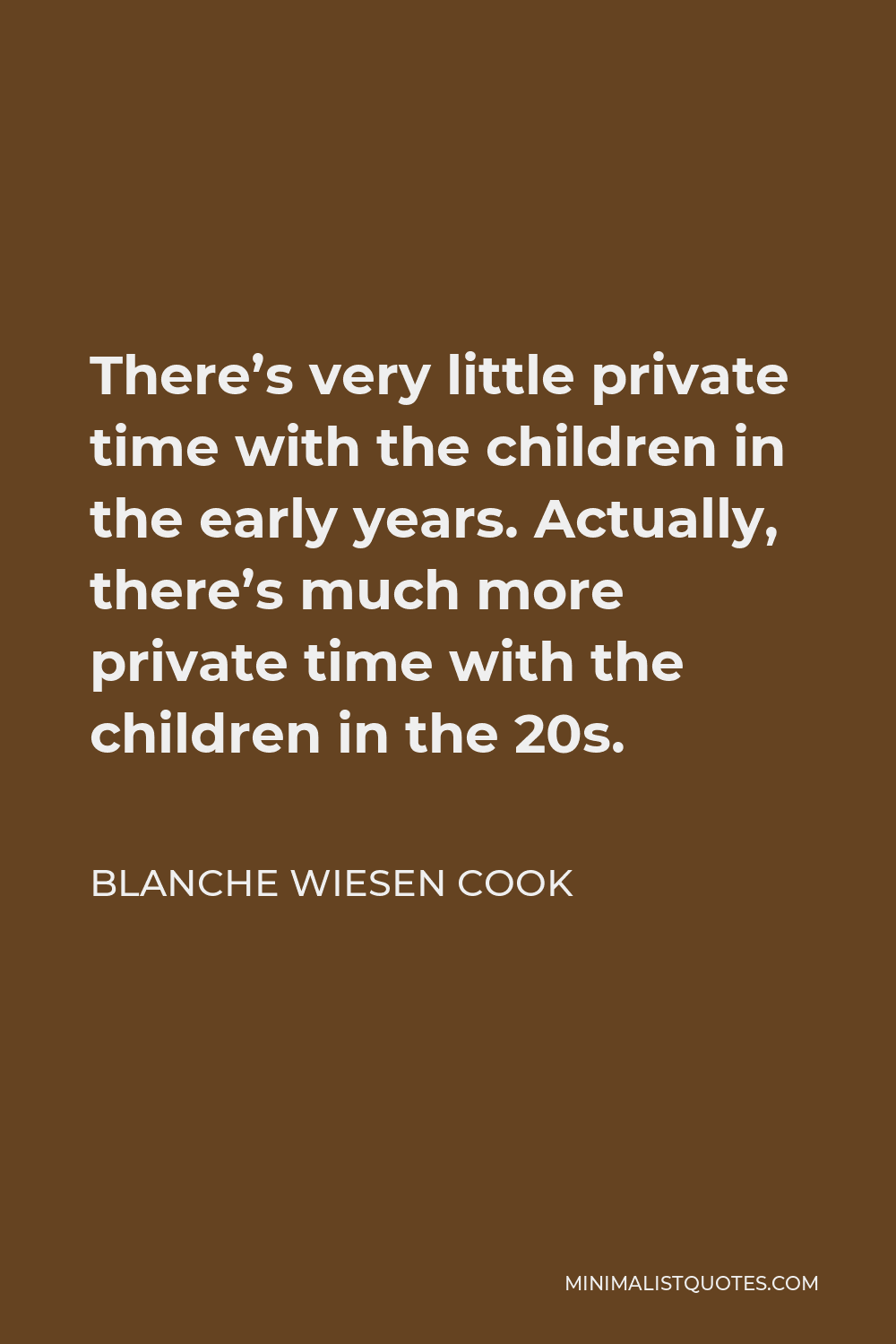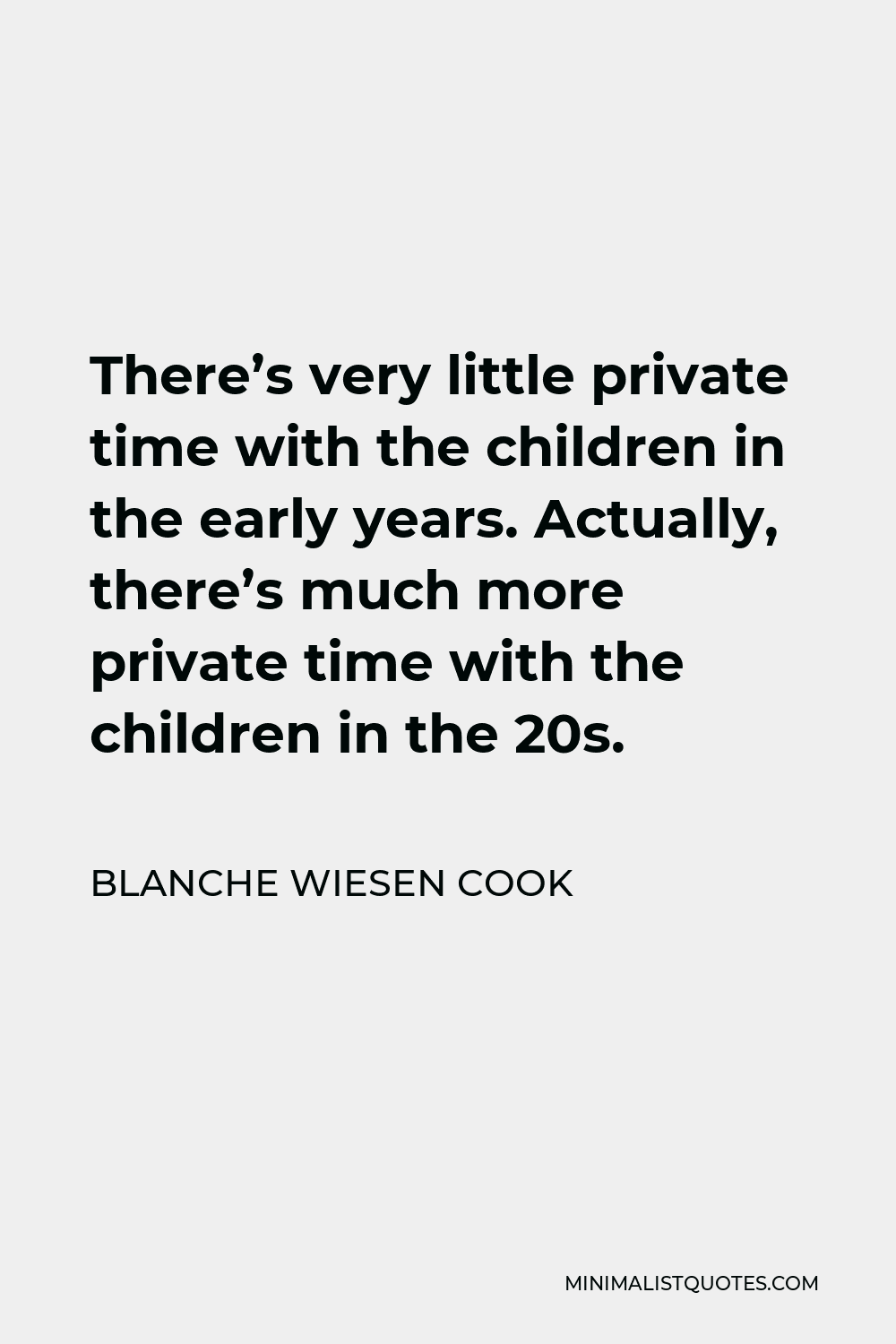But it’s also the beginning of another level of liberation for her]Eleanor Roosevelt], because when she returns to New York, she gets very involved in a new level of politics.
BLANCHE WIESEN COOKThere’s very little private time with the children in the early years. Actually, there’s much more private time with the children in the 20s.
More Blanche Wiesen Cook Quotes
-





![Blanche Wiesen Cook Quote - But it’s also the beginning of another level of liberation for her]Eleanor Roosevelt], because when she returns to New York, she gets very involved in a new level of politics.](https://minimalistquotes.com/images/but-its-also-the-beginning-of-another-level-of-lib.jpg)
-





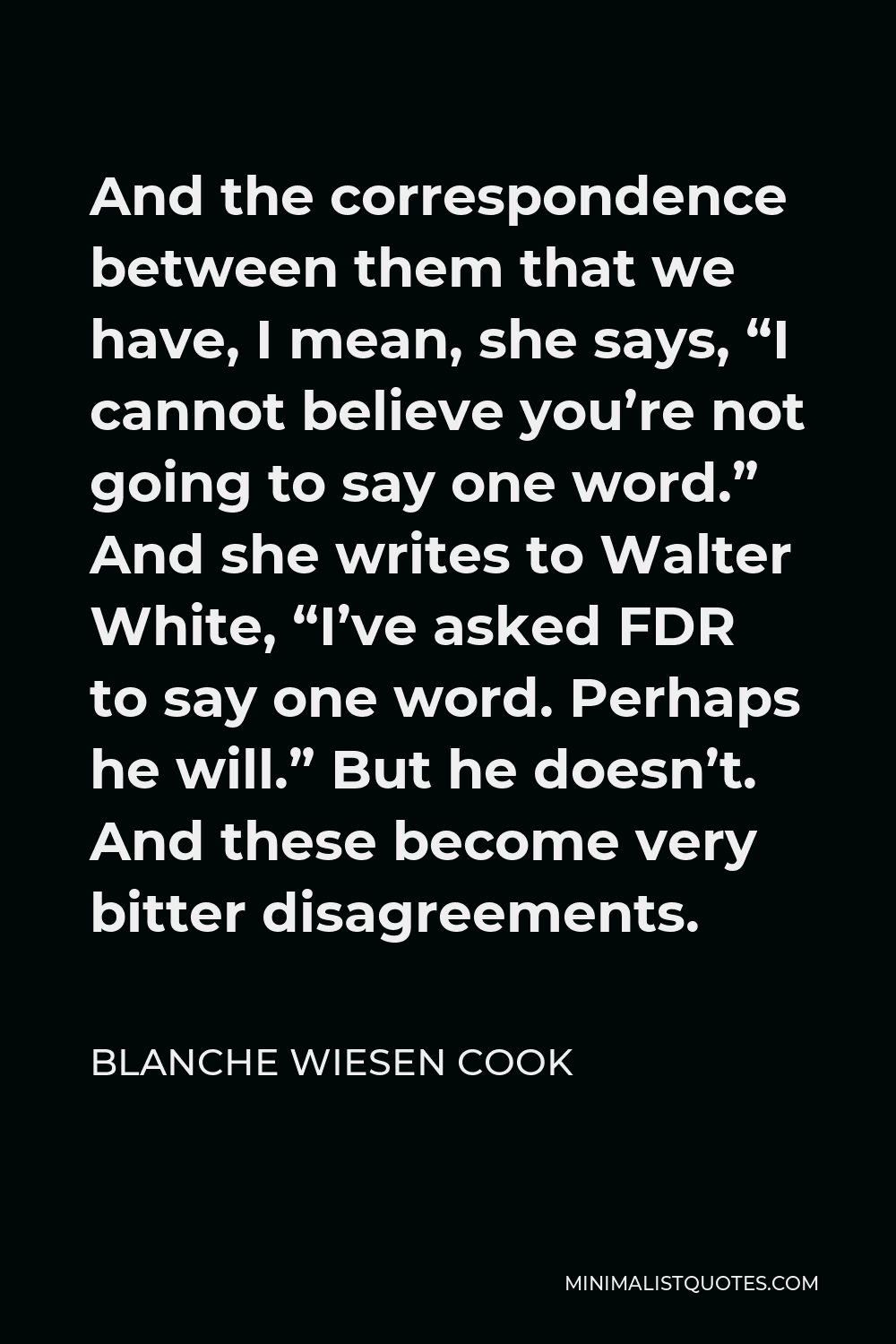
And the correspondence between them that we have, I mean, she says, “I cannot believe you’re not going to say one word.” And she writes to Walter White, “I’ve asked FDR to say one word. Perhaps he will.” But he doesn’t. And these become very bitter disagreements.
BLANCHE WIESEN COOK -





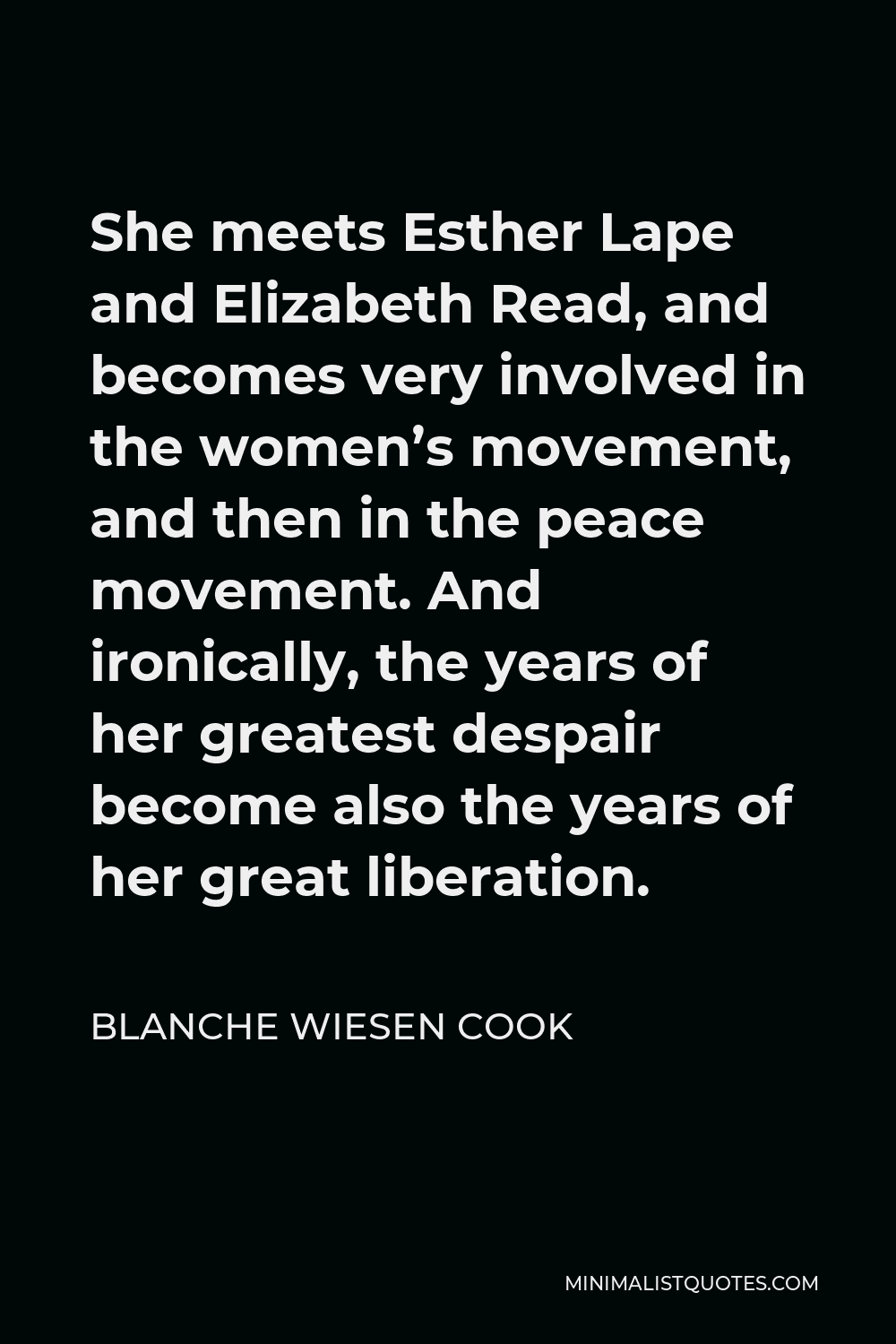
She meets Esther Lape and Elizabeth Read, and becomes very involved in the women’s movement, and then in the peace movement. And ironically, the years of her greatest despair become also the years of her great liberation.
BLANCHE WIESEN COOK -






I think FDR was very dashing and charming and debonair, and probably reminded her of her father. A great bon-vivant. He loved to party.
BLANCHE WIESEN COOK -





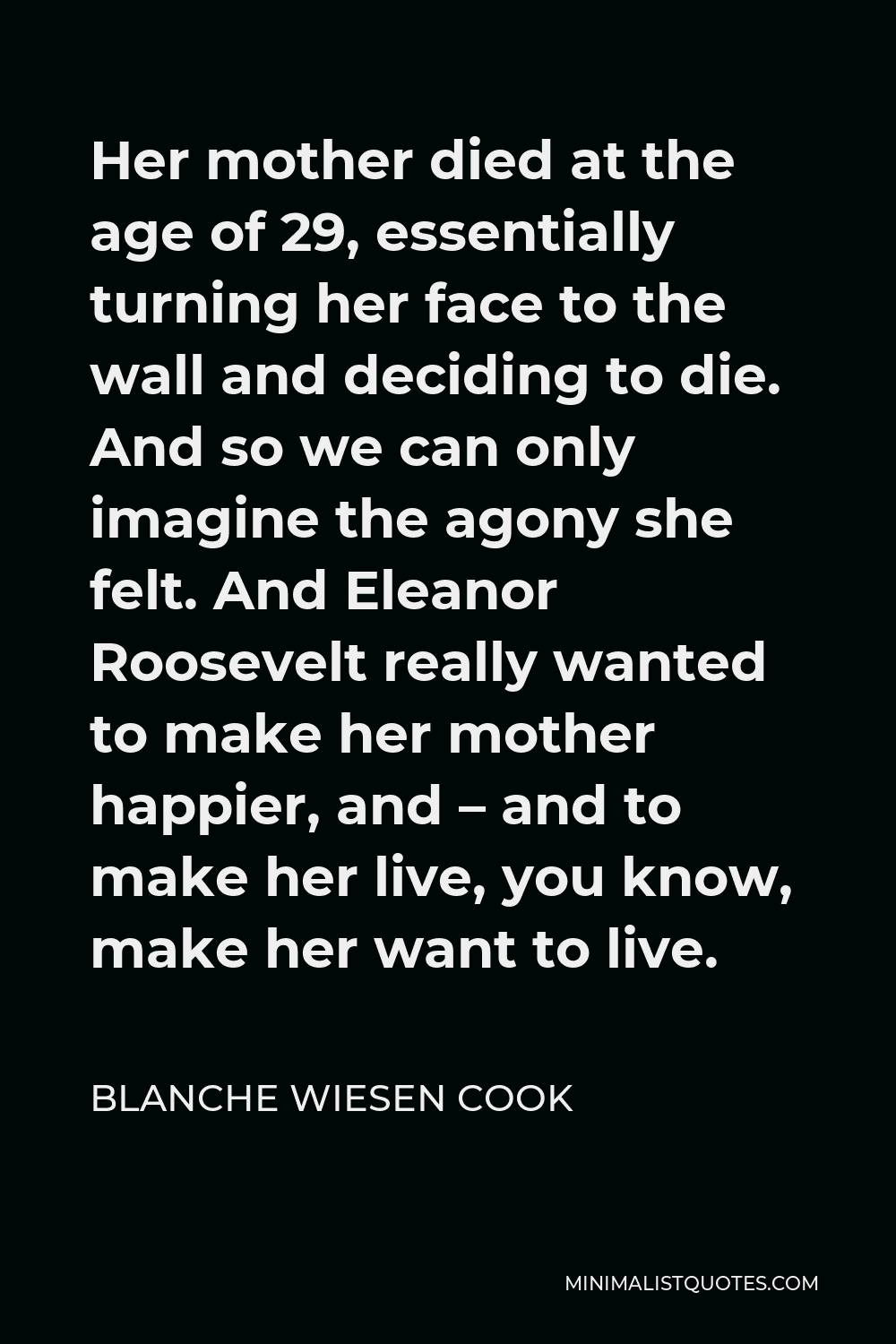
Her mother died at the age of 29, essentially turning her face to the wall and deciding to die. And so we can only imagine the agony she felt. And Eleanor Roosevelt really wanted to make her mother happier, and – and to make her live, you know, make her want to live.
BLANCHE WIESEN COOK -





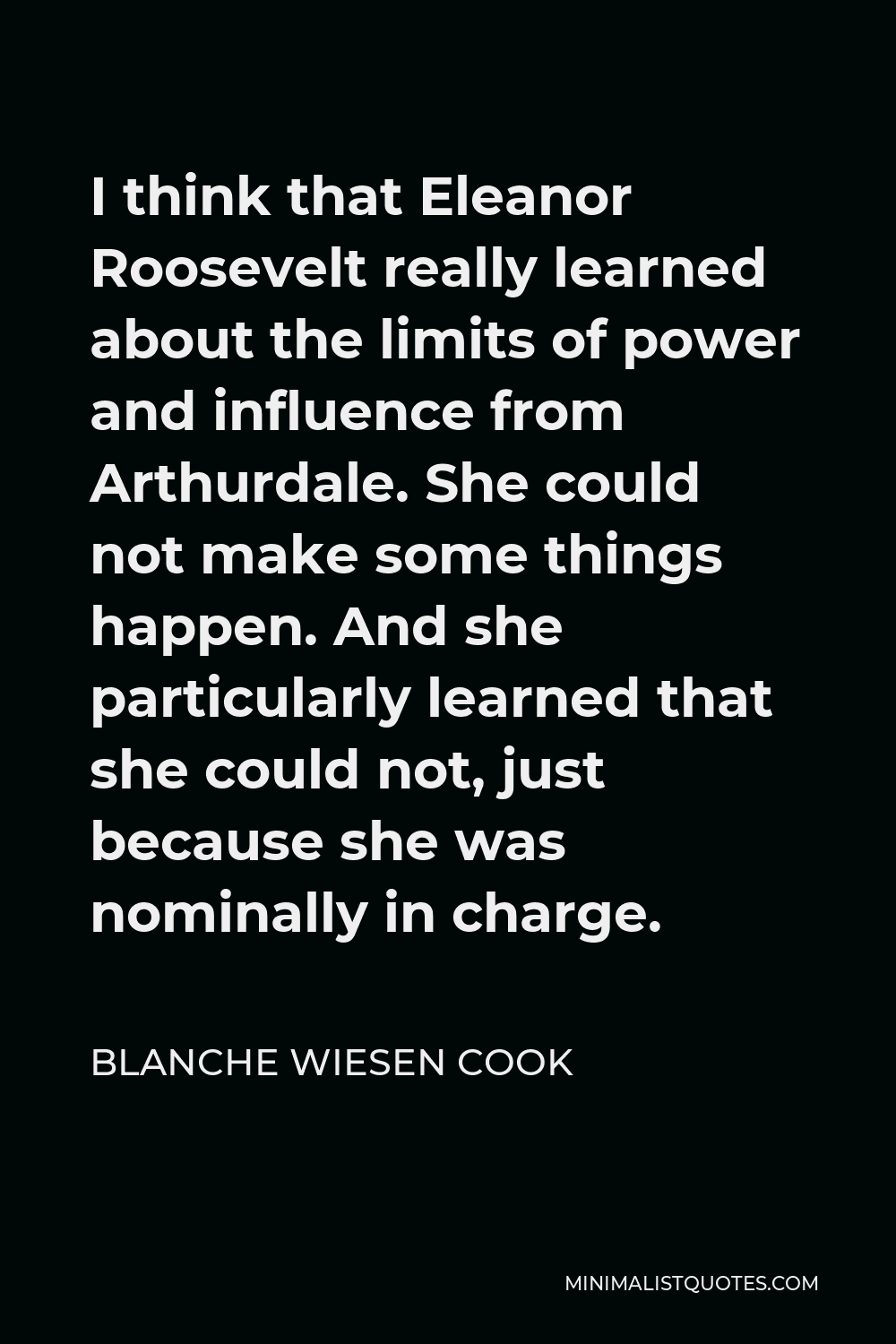
I think that Eleanor Roosevelt really learned about the limits of power and influence from Arthurdale. She could not make some things happen. And she particularly learned that she could not, just because she was nominally in charge.
BLANCHE WIESEN COOK -





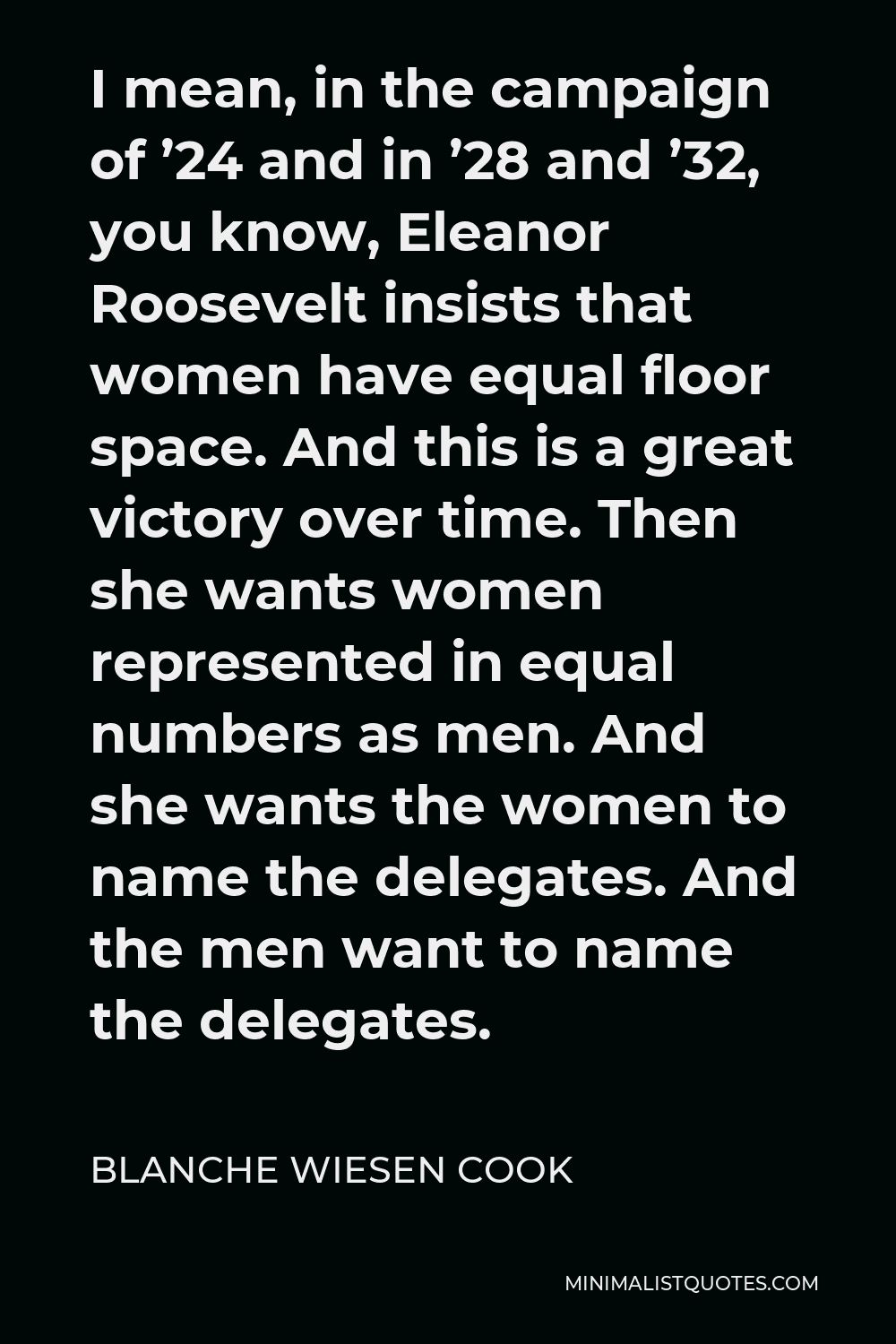
I mean, in the campaign of ’24 and in ’28 and ’32, you know, Eleanor Roosevelt insists that women have equal floor space. And this is a great victory over time. Then she wants women represented in equal numbers as men. And she wants the women to name the delegates. And the men want to name the delegates.
BLANCHE WIESEN COOK -





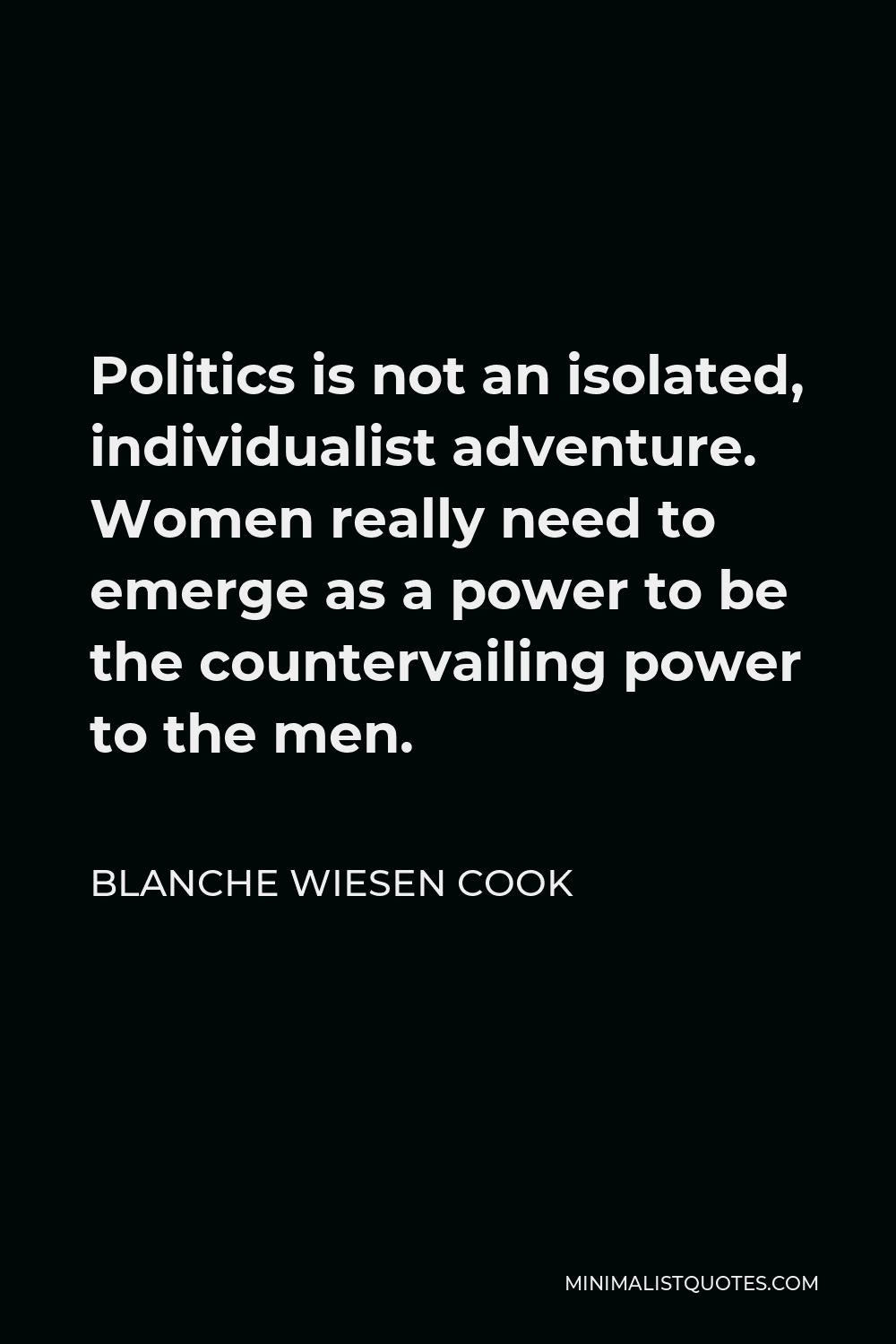
Politics is not an isolated, individualist adventure. Women really need to emerge as a power to be the countervailing power to the men.
BLANCHE WIESEN COOK -





![Blanche Wiesen Cook Quote - And in her [Eleanor Roosevelt] letters, she writes the most, you know, fanciful letters: when we are together, and when we are reunited, and you know,](https://minimalistquotes.com/images/and-in-her-eleanor-roosevelt-letters-she-writes-th.jpg)
And in her [Eleanor Roosevelt] letters, she writes the most, you know, fanciful letters: when we are together, and when we are reunited, and you know,
BLANCHE WIESEN COOK -





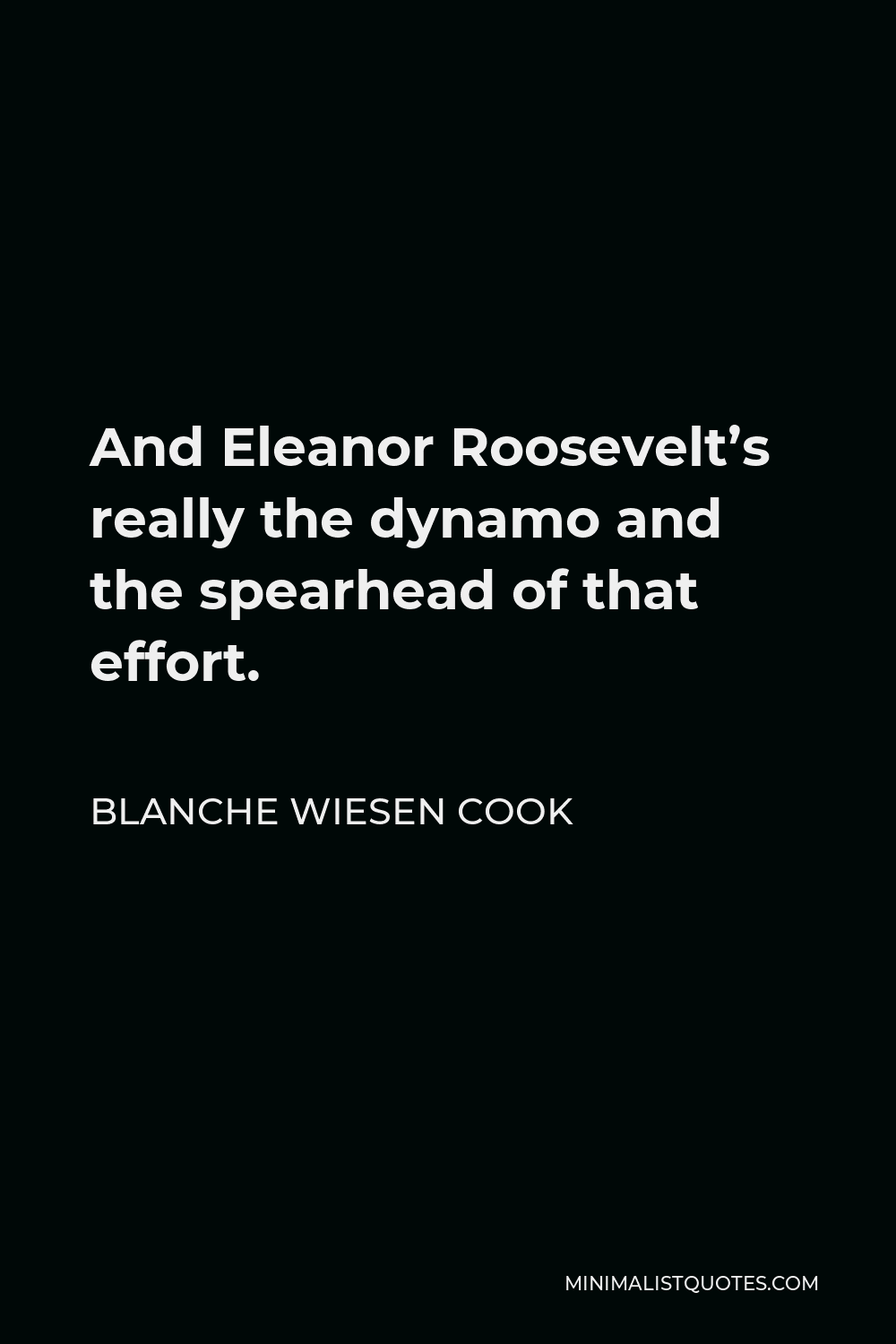
And Eleanor Roosevelt’s really the dynamo and the spearhead of that effort.
BLANCHE WIESEN COOK -





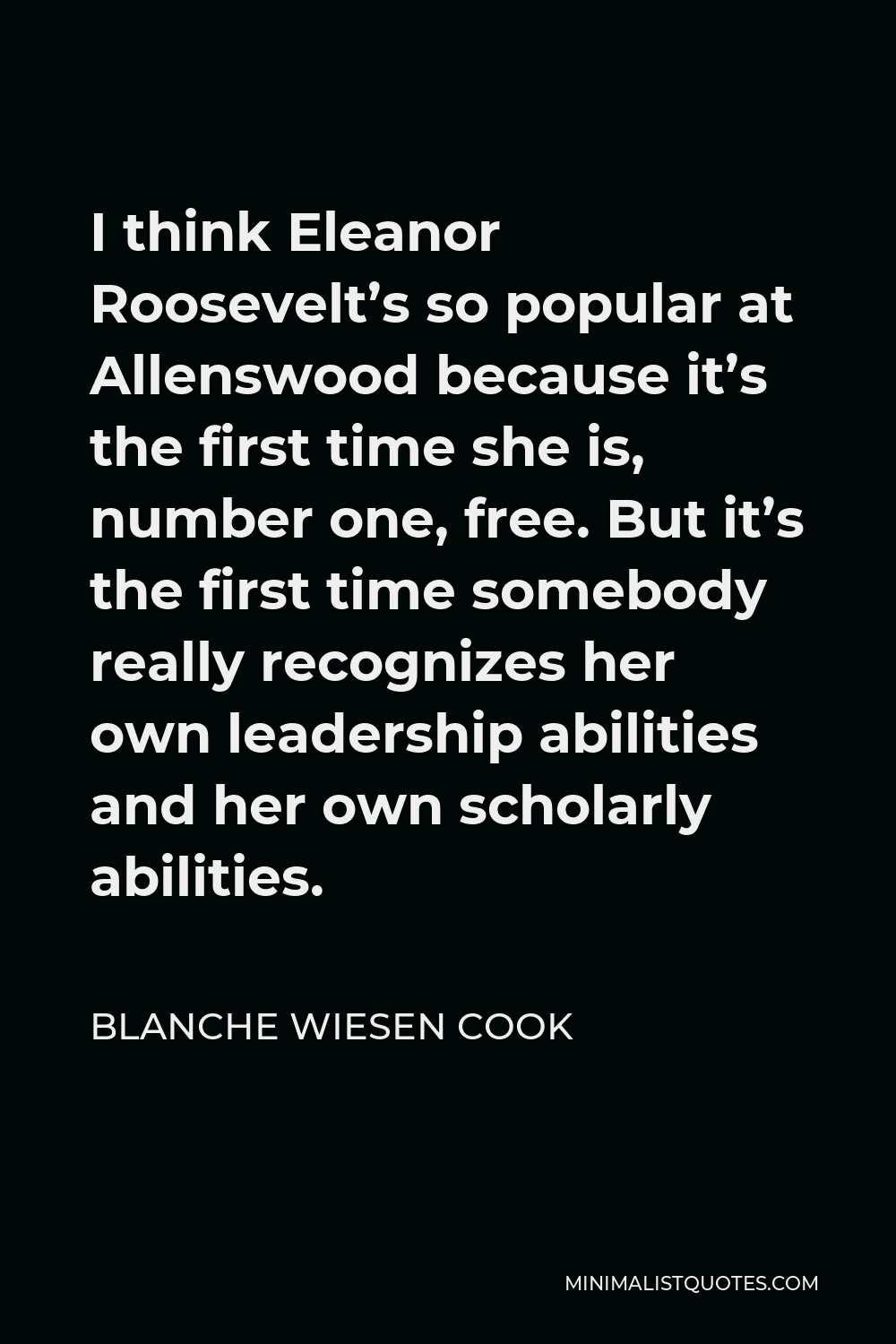
I think Eleanor Roosevelt’s so popular at Allenswood because it’s the first time she is, number one, free. But it’s the first time somebody really recognizes her own leadership abilities and her own scholarly abilities.
BLANCHE WIESEN COOK -





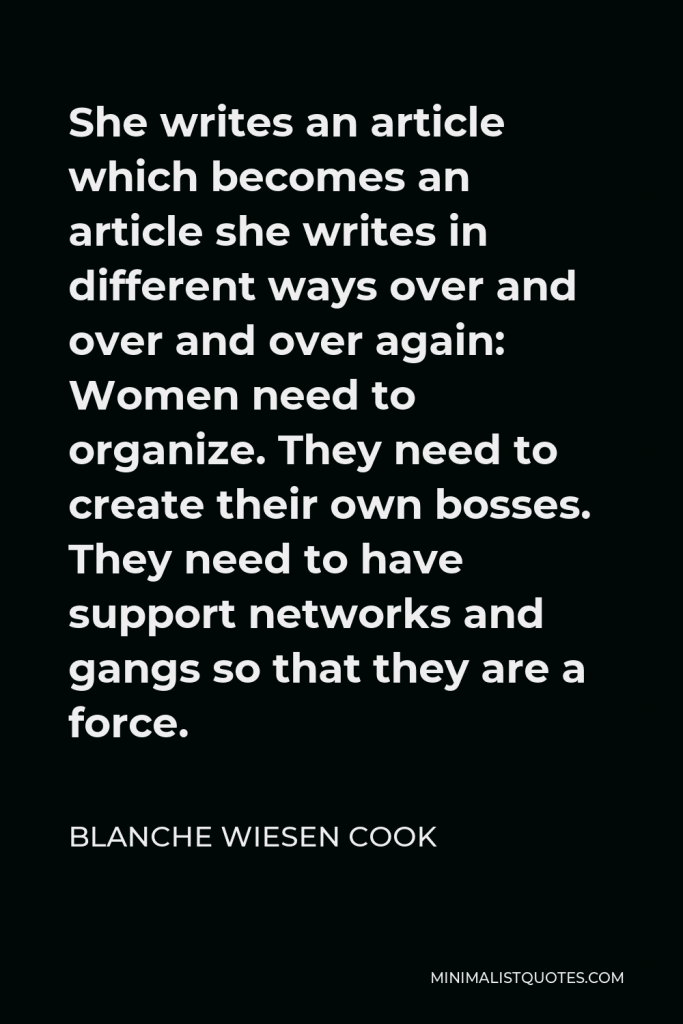

She writes an article which becomes an article she writes in different ways over and over and over again: Women need to organize. They need to create their own bosses. They need to have support networks and gangs so that they are a force.
BLANCHE WIESEN COOK -





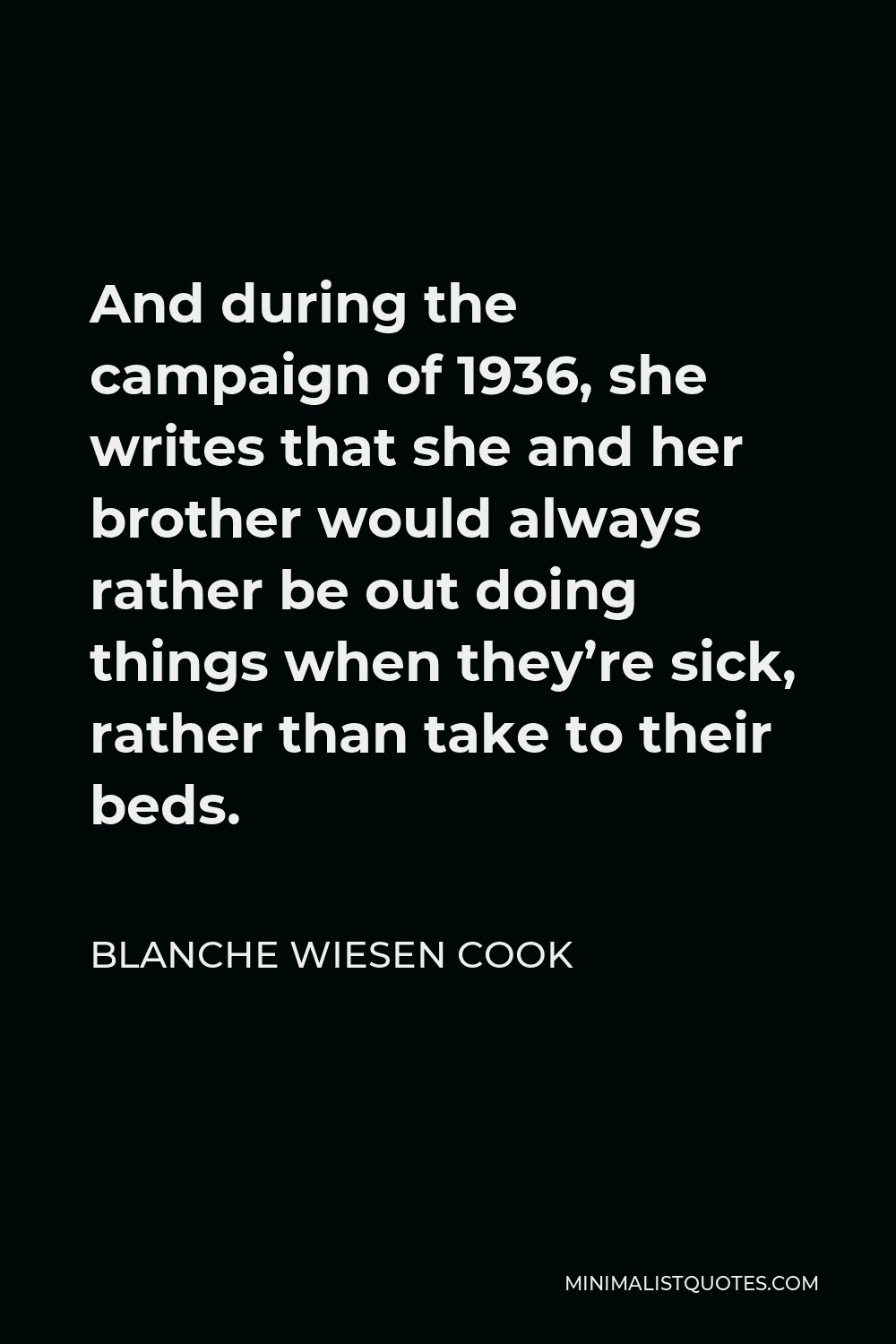
And during the campaign of 1936, she writes that she and her brother would always rather be out doing things when they’re sick, rather than take to their beds.
BLANCHE WIESEN COOK -





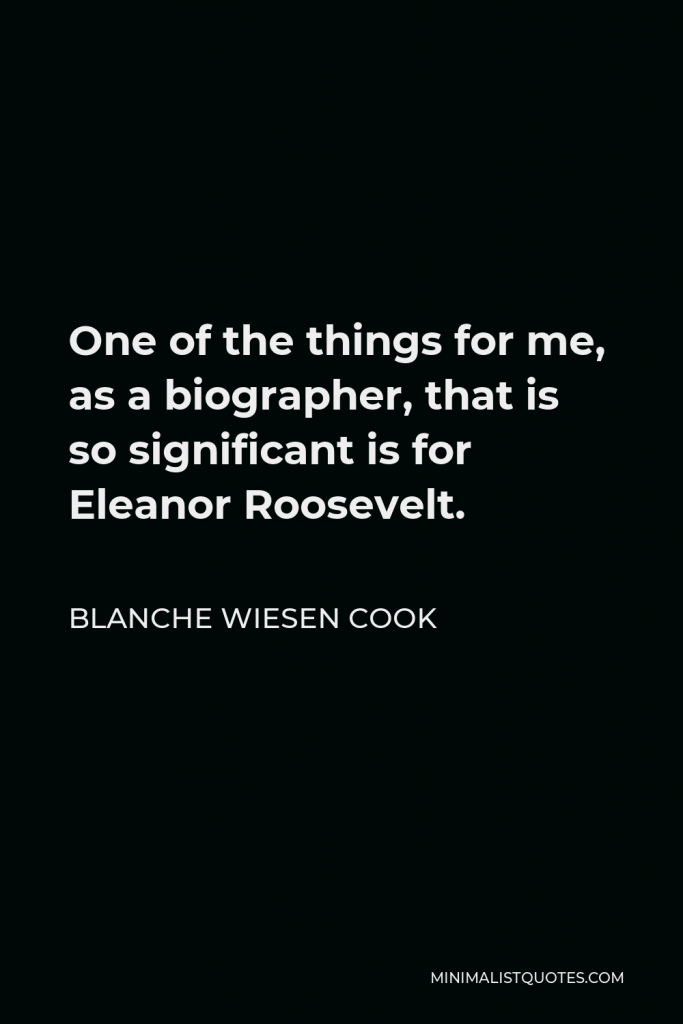

One of the things for me, as a biographer, that is so significant is for Eleanor Roosevelt.
BLANCHE WIESEN COOK -







Also, she spoke perfect French. She grew up speaking French. She’s now at a french-speaking school where, you know, girls are coming from all over the world. Not everybody speaks French.
BLANCHE WIESEN COOK -





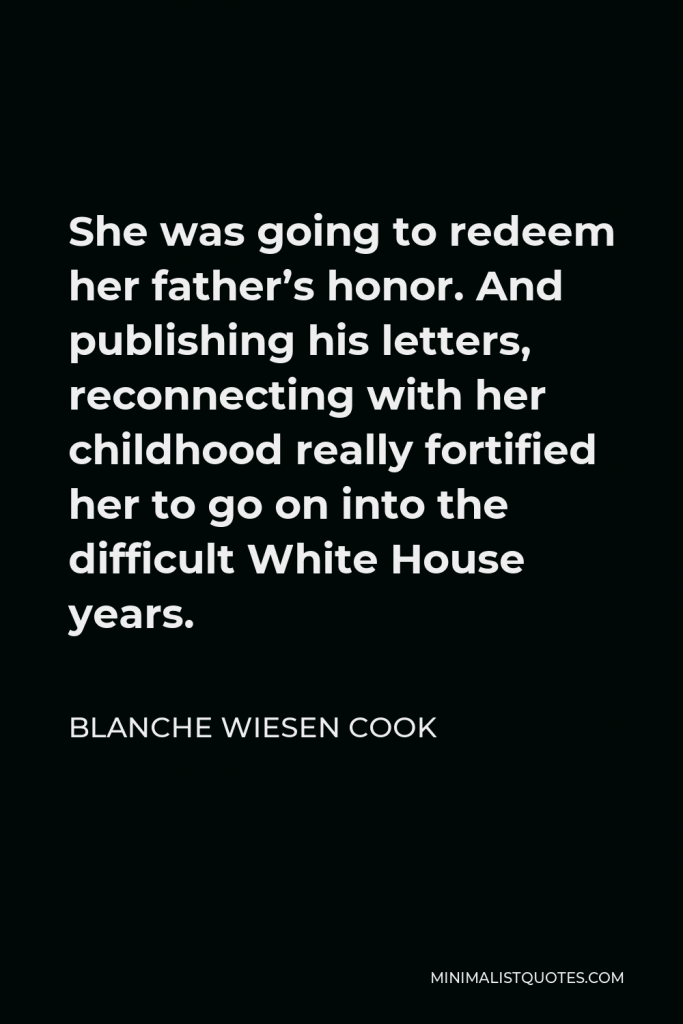

She was going to redeem her father’s honor. And publishing his letters, reconnecting with her childhood really fortified her to go on into the difficult White House years.
BLANCHE WIESEN COOK
